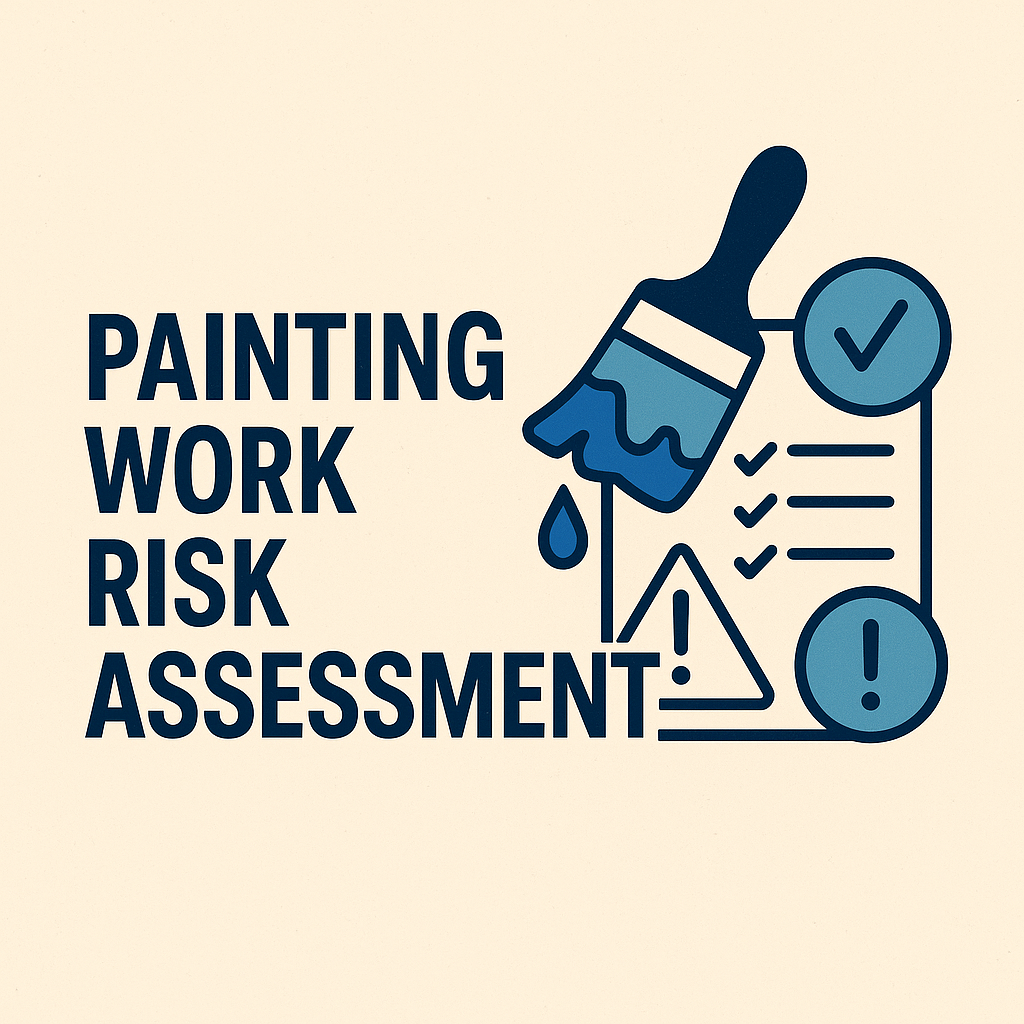
How to Prepare for a Safety Engineer Interview
Introduction
Safety engineers play a vital role in ensuring workplace safety and compliance with regulations. Securing a safety engineer position requires more than just a resume; it demands meticulous preparation for the interview process. This guide provides insights into effective strategies for preparing for a safety engineer interview.
Understanding the Role of a Safety Engineer
Safety engineers are responsible for designing and implementing safety protocols, conducting risk assessments, and ensuring compliance with industry standards. Understanding the multifaceted nature of the role is crucial before heading into an interview. Familiarize yourself with the specific duties associated with safety engineering positions to articulate your suitability effectively.
Key Qualities of a Successful Safety Engineer
Successful safety engineers exhibit a combination of technical proficiency and personal attributes. Employers seek individuals who are detail-oriented, analytical, and possess strong problem-solving skills. Emphasize your commitment to creating a safe working environment and your ability to proactively identify and address potential hazards.
Researching the Company and Industry
Thorough research on the prospective employer and industry is a key element of interview preparation. Gain insights into the company’s safety culture, recent safety initiatives, and any industry-specific regulations. Demonstrating knowledge about the company’s safety practices not only impresses the interviewer but also reflects your genuine interest in contributing to the organization’s safety goals.
Preparation for Common Interview Questions
Anticipating and preparing for common safety engineer interview questions is crucial. Practice responses to questions like, “How do you approach safety protocol implementation?” or “Can you share an instance where your risk assessment prevented a workplace accident?” This preparation ensures you can articulate your thoughts clearly and demonstrate your practical understanding of safety engineering.
Showcasing Relevant Experience
Highlighting your relevant experience is a critical aspect of the interview. Discuss specific projects or initiatives where your contributions positively impacted safety measures. Quantify your achievements, providing tangible evidence of your ability to enhance workplace safety based on your past experiences.
Demonstrating Knowledge of Safety Protocols
Safety engineers must possess a deep understanding of safety protocols and procedures. During the interview, be prepared to discuss your familiarity with industry-specific guidelines and your experience in implementing and overseeing safety protocols effectively.
Addressing Situational Scenarios
Situational questions assess your ability to apply theoretical knowledge to real-world situations. Practice responding to scenarios related to emergency response, hazard identification, and safety protocol implementation. Provide detailed and well-thought-out responses to showcase your problem-solving skills and adaptability.
Emphasizing Communication Skills
Effective communication is paramount for a safety engineer. Emphasize your ability to convey complex safety information clearly to diverse audiences within the organization. Share examples where your communication skills have positively influenced safety awareness and compliance.
Understanding Safety Technologies
Stay updated on the latest safety technologies relevant to your field. Familiarize yourself with tools such as safety management systems, hazard analysis software, and other emerging technologies. Discussing your awareness of and experience with these technologies during the interview demonstrates your commitment to staying abreast of industry advancements.
Preparing for Technical Questions
Safety engineering roles often involve technical aspects, such as conducting hazard analyses and designing safety systems. Be ready to answer technical questions related to your field. Highlight any certifications, training, or coursework that showcases your proficiency in these technical areas.
Discussing Continuous Learning and Improvement
Express your commitment to ongoing learning and improvement. Discuss any professional development courses, workshops, or conferences you’ve attended to stay updated on industry trends and advancements in safety engineering practices.
Tips for Confidence and Body Language
Confidence is a key factor in any interview. Practice maintaining good posture, making eye contact, and using assertive yet approachable body language. Projecting confidence not only creates a positive impression but also reflects your ability to lead and inspire confidence in others.
Common Pitfalls to Avoid
Be aware of common pitfalls that can undermine your success in a safety engineer interview. Avoid generic responses, lack of preparation, or overemphasis on theoretical knowledge at the expense of practical application. Additionally, steer clear of being too rigid; employers value adaptable safety engineers who can navigate diverse challenges effectively.
Preparing for a Safety Engineer interview involves a combination of technical knowledge, problem-solving skills, and a thorough understanding of safety regulations and protocols. Here are some tips to help you prepare:- Research the Company:
- Familiarize yourself with the company’s operations, industry, and any specific safety challenges they may face. This will demonstrate your genuine interest in the position.
- Understand Safety Regulations:
- Refresh your knowledge of relevant safety regulations and standards applicable to the industry in which the company operates. This may include OSHA (Occupational Safety and Health Administration) standards or other regional safety guidelines.
- Review Your Resume:
- Be ready to discuss your relevant experience, including specific projects or achievements related to safety engineering. Highlight any certifications, training, or coursework that demonstrates your expertise.
- Technical Knowledge:
- Be prepared to answer technical questions related to safety engineering. This could include topics such as hazard analysis, risk assessment, safety system design, emergency response planning, and accident investigation.
- Behavioral Questions:
- Expect behavioral questions that assess your problem-solving and decision-making skills. Provide specific examples from your past experiences that demonstrate your ability to handle safety-related challenges.
- Case Studies and Scenarios:
- Be ready to analyze safety-related case studies or scenarios. Employers may present hypothetical situations to evaluate your problem-solving skills and your approach to mitigating safety risks.
- Stay Updated on Industry Trends:
- Stay informed about the latest trends, technologies, and best practices in safety engineering. This knowledge will show that you are committed to ongoing professional development.
- Communication Skills:
- Practice explaining complex safety concepts in a clear and concise manner. Safety engineers often need to communicate with diverse teams, so effective communication is crucial.
- Ask Questions:
- Prepare thoughtful questions to ask the interviewers. This demonstrates your interest in the company and the role. Questions could focus on the company’s safety culture, ongoing safety initiatives, or specific challenges they are currently facing.
- Mock Interviews:
- Conduct mock interviews with a friend or mentor. This will help you practice your responses and receive constructive feedback.
- Portfolio:
- If applicable, bring a portfolio showcasing your work, including project details, safety plans, and any relevant documentation. This can be a valuable visual aid during the interview.
- Review Common Safety Engineering Topics:
- Brush up on common safety engineering topics such as hazard identification, risk assessment, safety audits, process safety management, and incident investigation.
Remember to tailor your preparation to the specific job requirements and the industry in which the company operates. Demonstrating a genuine passion for safety, coupled with a strong technical skill set, will make you stand out in a Safety Engineer interview.
Here are some sample examples that you might encounter in a Safety Engineer interview:- Technical Knowledge:
- Question: “Can you explain the process of conducting a hazard analysis?”
- Sample Answer: “Certainly. Hazard analysis involves identifying and assessing potential hazards in a workplace. This typically includes a systematic examination of equipment, processes, and work environments to determine potential risks. It often follows methods like HAZOP (Hazard and Operability Study) or FMEA (Failure Mode and Effect Analysis).”
- Question: “Can you explain the process of conducting a hazard analysis?”
- Behavioral Questions:
- Question: “Describe a situation where you had to quickly assess and address a safety issue in a time-sensitive environment.”
- Sample Answer: “In my previous role, we had a sudden equipment malfunction that posed an immediate safety risk. I coordinated with the maintenance team, initiated an emergency shutdown, and communicated effectively with all stakeholders to ensure a swift response. This incident highlighted the importance of having robust emergency protocols in place.”
- Question: “Describe a situation where you had to quickly assess and address a safety issue in a time-sensitive environment.”
- Case Studies and Scenarios:
- Scenario: “You discover a potential safety hazard in a manufacturing process. What steps would you take to address it?”
- Sample Answer: “First, I would immediately isolate the area to prevent any potential harm. Then, I would conduct a thorough risk assessment to understand the severity and likelihood of the hazard. Following that, I’d collaborate with relevant teams to implement corrective measures, update safety procedures, and conduct employee training to prevent similar incidents in the future.”
- Scenario: “You discover a potential safety hazard in a manufacturing process. What steps would you take to address it?”
- Communication Skills:
- Question: “Explain a complex safety concept to a non-technical team member.”
- Sample Answer: “Sure. Let’s take the concept of ‘process safety.’ It’s about systematically managing the integrity of processes involving hazardous substances. I would explain to a non-technical audience that it’s like having multiple layers of protection to prevent and mitigate potential incidents, ensuring everyone’s safety within the workplace.”
- Question: “Explain a complex safety concept to a non-technical team member.”
- Problem-Solving Skills:
- Question: “Describe a challenging safety-related problem you encountered and how you resolved it.”
- Sample Answer: “In a previous project, we faced a recurring issue with equipment malfunction leading to safety concerns. I conducted a root cause analysis, collaborated with the engineering team to implement design changes, and provided additional training to operators. This comprehensive approach successfully resolved the problem and improved overall safety.”
- Question: “Describe a challenging safety-related problem you encountered and how you resolved it.”
These examples cover a range of potential questions and scenarios that you might encounter in a Safety Engineer interview. Remember to adapt your responses based on your personal experiences and the specific requirements of the job.Conclusion
Preparing for a safety engineer interview requires a combination of research, practical knowledge, and effective communication skills. By understanding the role, showcasing relevant experience, and staying updated on industry trends, you can confidently navigate the interview process and increase your chances of securing the position.
Interview Question: Why Should We Hire You? How To Answer
Interview Question: Where do you see yourself in five years? How To Answer
Interview Question: What is your greatest professional achievement? How To Answer
Interview Question: Can you describe a challenge you’ve overcome in a previous job? How To Answer
Interview Question: What interests you about this position? How To Answer
FAQs
- Q: How can I stand out in a safety engineer interview?
- A: Highlight specific achievements, demonstrate your commitment to continuous learning, and emphasize effective communication skills.
- Q: What technical aspects should I focus on during preparation?
- A: Be prepared to discuss hazard analysis, safety system design, and your familiarity with safety technologies.
- Q: How important is researching the company before the interview?
- A: It’s crucial. Understanding the company’s safety culture and recent initiatives demonstrates your genuine interest in the role.
- Q: How do I address situational scenarios effectively?
- A: Practice responding to scenarios related to emergency response, hazard identification, and safety protocol implementation.
- Q: Any tips for projecting confidence during the interview?
- A: Practice good posture, maintain eye contact, and use assertive yet friendly body language to project confidence.
























